The Story Behind Led Zeppelin’s “Travelling Riverside Blues”

Feature Photo: Bruce Alan Bennett / Shutterstock.com
When Led Zeppelin released their four CD Box Set Led Zeppelin on September 9, 1990, Led Zeppelin fans were treated to two Led Zeppelin recordings that had never been released before. One was a studio recording entitled “Travelling Riverside Blues.” The other was a live performance of “White Summer/Black Mountain Side.”
The Led Zeppelin box set was the first compilation of Led Zeppelin material ever released. The box set was released in three different configurations. There was a four-CD Set, a six-vinyl record set, and a four-cassette tape set. All three configurations contained a 36-page deluxe booklet. The box set was released in a large album sized hard cardboard box. All the songs on the album had been remastered. The initial Led Zeppelin CD releases in the 1980s sounded horrible. The Led Zeppelin box set contained the best sounding versions of those classic Led Zeppelin songs that we all grew up with. It was the first of many attempts at remastering the Led Zeppelin material.
Led Zeppelin was never known as a band that released rare material. With the exception of “Hey, Hey, What Can I Do,” all the singles released from Led Zeppelin albums contained only album tracks on the b sides. No greatest hits albums were released during their tenure. Led Zeppelin was always very guarded about their material. The arrival of the box set in 1990, only ten years after the band had broken up, surprised many Led Zeppelin fans. The grand surprise was the inclusion of the two unreleased tracks.
The inclusion of “Traveling Riverside Blues,” on the Led Zeppelin box set was the crown jewel of the box set for Led Zeppelin fans. The song had been recorded in 1969 at one of the seven BBC studios in London, England. Because the song had been recorded at one of the BBC studios. The BBC held the rights to the recording. Legally, Led Zeppelin could not release the recording until they negotiated with the BBC for the recording’s release. Led Zeppelin’s “Traveling Riverside Blues” performance was initially recorded by the BBC at Aeolian Hall in England on June 24th, 1969. At the time, Led Zeppelin was touring the United Kingdom. John Walters of the BBC produced the song’s recording. The song was broadcast on the John Peel Top Gear show on June 28, 1969.
The “Traveling Riverside Blues” recording is vintage Led Zeppelin circa 1969. Robert Plant’s incredible vocals fuel the song. Robert Plant is pitch-perfect on the tune, while Jimmy Page lays down his signature guitar solos and riffs. It’s a stunning recording of a band that seemed to be in their prime early on—a prime that never ended until the band broke up.
“Traveling Riverside Blues” is a song by Robert Johnson. It was initially written in 1937. However, because it was never released at the time, the public never heard of the song until the 1960s when it was released on the album King of the Delta Blues Singers in 1961
Robert Johnson’s original version.

The Story Behind Led Zeppelin’s “Travelling Riverside Blues” article published on Classic RockHistory.com© 2024

DON’T MISS A BEAT
Be the first to know when a new article is published
We don’t spam! Read our privacy policy for more info.

Check your inbox or spam folder to confirm your subscription.
Related Posts

Don’t Miss Led Zeppelin’s Brilliant Performance of Kashmir in 2007

Led Zeppelin Albums Ranked With Best Song Choices

Sitting On Stage With Led Zeppelin 1969

Before Led Zeppelin, There Was Band Of Joy

Looking Back At Led Zeppelin’s Masterpiece Led Zeppelin II

Read Why Led Zeppelin By Led Zeppelin Book Is So Worth Owning
About the author.
Brian Kachejian
Brian Kachejian was born in Manhattan and raised in the Bronx. He is the founder and Editor in Chief of ClassicRockHistory.com. He has spent thirty years in the music business often working with many of the people who have appeared on this site. Brian Kachejian also holds B.A. and M.A. degrees from Stony Brook University along with New York State Public School Education Certifications in Music and Social Studies. Brian Kachejian is also an active member of the New York Press.
Add Comment Cancel Reply
Yes, add me to your mailing list
This site uses Akismet to reduce spam. Learn how your comment data is processed .

- Songwriter Interviews
- Song Writing
- Fact or Fiction
- They're Playing My Song
- Songfacts Pages
- Songwriting Legends
- Songfacts Podcast
- Amanda Flinner
- Bruce Pollock
- Corey O'Flanagan
- Dan MacIntosh
- Laura Antonelli
- Leslie Michele Derrough
- Maggie Grimason
- Nicole Roberge
- Roger Catlin
- Shawna Ortega
- Stephanie Myers
- Trevor Morelli
Traveling Riverside Blues by Led Zeppelin
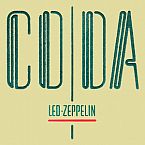
Songfacts®:
- This was written and originally recorded by blues great Robert Johnson. Led Zeppelin borrowed heavily from American blues music. , CA) >> Suggestion credit : Henric - San Diego (Vaxjo
- Led Zeppelin first played this for a BBC session in 1969, but the song was never released on an album. It was placed on the Box Set in 1990, and it was also made a bonus track on the Coda album for the Complete Studio Recordings. >> Suggestion credit : A.J. - Toledo, OH
- Jimmy Page used a 12-string acoustic guitar to play this song. >> Suggestion credit : Jordan - St. Louis, MO
- In the third verse, it sounds like Robert Plant mistakenly sings "My baby geen bone" instead of 'My baby been gone." >> Suggestion credit : Nate - Buffalo, NY
- The lyric, "I've had no lovin' since my baby been gone" came from B.B. King's "Woke Up This Morning (My Baby Was Gone)."
- To get the fast bass beats, John Bonham used "triplets" on the bass drum - he would use the tip of his toe. >> Suggestion credit : Thomas - Toronto, Canada, for above 2
- More songs from Led Zeppelin
- More songs from 1982
- Lyrics to Traveling Riverside Blues
- Led Zeppelin Artistfacts
Comments: 21
- Tyler W from Florida One small note, there were many blues musicians decades before BB King who used the line "I've had no lovin' since my baby been gone" and variations of it.
- Rick from Miami Please don't squeeze me lemon
- Stungem 75x from Lancaster, Pa Definitely, one of the sexiest songs Zepp ever did. Definitely, one of my top 5 favs. It’s like a slow driving machine. Givin it to ya and unstoppable.
- Louis from Drexel Hill, Pa Ahmet Ertegun once said that Plant knew every lyric to every song ever recorded. You can hear that on albums and recordings of live performances. The lyrics "...kind-hearted woman, studies evil all the time..." comes from the Robert Johnson song "Kind-Hearted Woman".
- Ray from Bonneville Salt Flats, Ut @- kenny, Minneapolis, MN. You've heard the lyrics correctly: "I AIN'T GOING TO STATE NO COLOR, BUT HER front teeth is crowned with gold." RJ was talkin about one of his black hoochie mamas, very possibly the woman about whom he wrote Love in Vain. John Hammond did a video/DVD thing in the late 70s and looked up some of the people who knew RJ....including the woman "Willie Mae", I think. When he played the song for her she burst into tears. Remember...he wrote these songs in a much different time that the one we live in now and taking it further, RJ lived in a microcosm of barrooms, brothels, juke joints and other high class establishments. His co-denizens of this blues world within the southern black world was...how to say it....pretty raw and sex, color and other subjects that would be taboo in out politically correct world were acceptable in that juke joint world.
- Josh from Champaign, Il Inviting a woman into the "kitchen" in this context is an allegory for inviting them in the bedroom to do some "cookin'" ;o) If you can't stand the heat...
- Lisa from Blountville , Tn I've got a kind hearted woman, / she studies evil all the time. / I've got a kind hearted woman, / she studies evil all the time. / You would do to quit me ... Robert Johnson Got no lien on my body. / Got no mortgage on my soul. / Got no lien on my body, baby. / Got no mortgage on my soul John Lee Hooker First time I heard this was on the box set .I thought well Zeppelin dug up some old stuff.This was back in the day before I started to collect Zeppelin bootlegs. I've heard the Clapton version...aahh it's ok. Zeppelin's version is far superior. Great slide from Jimmy.Robert belting out almost every well know blues line is so great you really felt as if in this song it was Zeppelin way of saying how much love and respect they have for the blues.
- David from Los Angeles , Ca This song is freakin' cool, if you like this song i suggest you listen to Jennings Farm Blues.
- Kenny from Minneapolis, Mn "Come On In My Kitchen" is explained by an excellent, very informative article on Wikipedia. On the liner notes of the Robert Johnson LP, the lyrics of "Travelling Riverside" are quoted as "I'm going to stay around Goldsboro, til my front teeth is crowned with gold." Listen to it. To my ear, he says, "I AIN'T GOING TO STATE NO COLOR, BUT HER front teeth is crowned with gold." Am I wrong? If I'm right, what does that lyric mean?? My only guess is so unbelievable, I'm afraid to say it.
- Oldpink from New Castle, In No wonder that opening guitar sounded so "jingle jangle!" Roger McGuinn probably gets a big smile whenever he hears this one. Great fun, and it's cool how Plant bellows out random delta blues lines.
- Ray from Bonneville Salt Flats, Ut An interesting experiment: Listen to RJ's original recording. Then listen to Eric Clapton's version. Finally listen to LZ's version. Clapton's lyrics are almost word-for-word with RJ's. LZ's is far, far away from the original and includes lines from so many Delta blues song as to leave yer head spinning. Having said that, I still love all 3 versions. The only criticism I have of LZ is that the electric guitar added to the acoustic 12-string sticks out like a sore thumb. It just doesn't belong there. Still, it's one of my favorite LZ songs and gets a lot of play in my car and at home via WinAmp.
- Peter Griffin from Quahog, Ri Nope, it's definitely "geen bone". How Zeppelin could have never recorded this song for an album is beyond me. It is FREAKING AWESOME.
- Smalls from Uniontown, Pa, Pa I could probably type all day about this song, if I wanted to, but I'll keep it short and sweet. This song is so f'n awesome that words alone do it no justice, go and listen to it.
- Jamey from Montgomery, Al Instead of 'My baby geen bone', I think the lyric was "Had no lovin' since my baby could ball,yeah".
- Jambi from T-town, Mi another one of jimmy's beautiful bluesy slide performances
- Peter Griffin from Quahog, Ri He does say "geen bone". He switched the vowels around.
- Peter Griffin from Quahog, Ri Same sexual innuendo as The Lemon Song, sung differently and worded slightly differently.
- Hanna from Trondheim, Norway Squeeze my lemon, yeah! :p Led Zeppelin rooccks.
- Michael from Lorain, Oh "Squeeze My lemon" Classic, one of my favorites. I cannot believe how my parents did not like me listening to singers like marilyn manson. The lyrics are the same to their music. The only difference is the meaning is laid between the lines. It is just the same as my parents parents not wanting them to listen to the begginings of Rock and Roll. Rock and Roll can never die. Guitars and drums are what got me this far. Peace, Mikey
- Kuriente from Binangonan, Other The quote, "Why don't you come in my kitchen?" is actually a Robert Johnson quote. Johnson being the one who originally wrote this song back in the 30's. The Zeppelin version of this song is actually quite different than the original and is more of a tribute to Johnson than a cover. "Why don't you come in my kitchen" comes from Johnson's "Come on in my kitchen." There are also some references to "Kind Hearted Woman Blues".
- Anonymous from , Wi Yes, we know what you're talking about, Robert... but what does he mean when he asks, "Why don't you come in my kitchen?" I feel like there's something I'm not getting here...
More Songfacts:
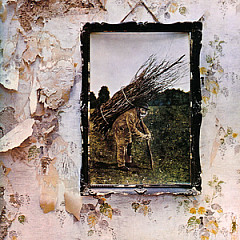
The Battle Of Evermore Led Zeppelin
"The Battle of Evermore" is the only song Zeppelin ever recorded with a guest vocalist. It features Sandy Denny from Fairport Convention duetting with Robert Plant.
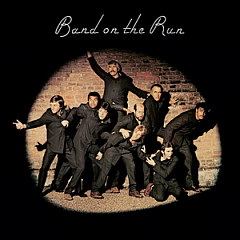
Jet Paul McCartney & Wings
The Australian band Jet took their name from the 1973 song of the same by Paul McCartney and Wings.
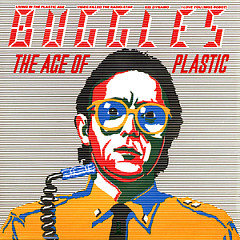
Video Killed The Radio Star Buggles
"Video Killed The Radio Star" by Buggles was the first video to air on MTV when the network started broadcasting on August 1, 1981.
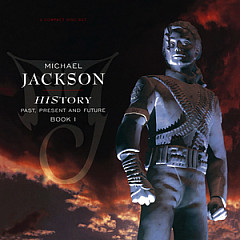
You Are Not Alone Michael Jackson
Michael Jackson's 1995 song "You Are Not Alone" was the first single in US history to enter the Billboard Hot 100 chart at #1

Mary, Did You Know? Pentatonix
The lyrics for "Mary, Did You Know?" were written by Christian singer and comedian Mark Lowry, after his pastor asked him to write a Christmas musical for their church. Southern gospel musician Buddy Greene later added music to his words.
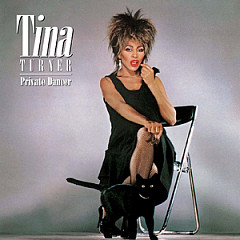
What's Love Got To Do With It Tina Turner
Tina Turner hated "What's Love Got To Do With It" but when her manager convinced her to record it anyway, it became her big comeback hit.
Editor's Picks

Yacht Rock Quiz Fact or Fiction
Christopher Cross with Deep Purple? Kenny Loggins in Caddyshack? A Fact or Fiction all about yacht rock and those who made it.
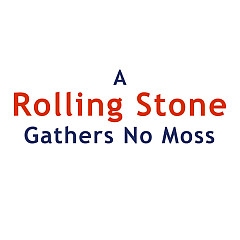
How "A Rolling Stone Gathers No Moss" Became Rock's Top Proverb Song Writing
How a country weeper and a blues number made "rolling stone" the most popular phrase in rock.
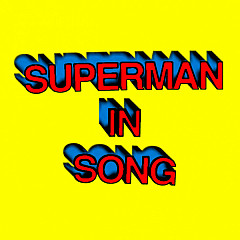
Superman in Song Song Writing
Not everyone can be a superhero, but that hasn't stopped generations of musicians from trying to be Superman.
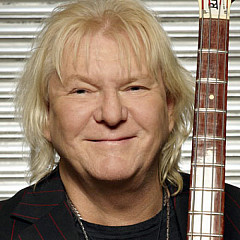
Chris Squire of Yes Songwriter Interviews
One of the most dynamic bass player/songwriters of his time, Chris is the only member of Yes who has been with the band since they formed in 1968.

Gavin Rossdale On Lyric Inspirations and Bush's Album The Kingdom Songwriter Interviews
The Bush frontman on where he finds inspiration for lyrics, if his "machine head" is a guitar tuner, and the stories behind songs from the album The Kingdom.


Eric Burdon Songwriter Interviews
The renown rock singer talks about "The House of the Rising Sun" and "Don't Let Me Be Misunderstood."
Songfacts® Newsletter
A monthly update on our latest interviews, stories and added songs
Information
- Terms of Service
- Our Privacy Policy
- Google Privacy Policy
- Songfacts API
- Music History Calendar
- Song Licensing
- Affiliate Disclosure
- Privacy Manager
- X (Twitter)
Contribution
- Message Boards
- Songfacts Writers
©2024 Songfacts, LLC
Watch Led Zeppelin’s Mississippi Delta-Inspired “Travelling Riverside Blues” Video
Jimmy Page pays tribute to blues guitar hero Robert Johnson in this 1969 BBC recording

It was the iconic blues guitarists who birthed the rock-star persona.
Robert Johnson , Son House , Lead Belly , Memphis Minnie , Charley Patton, John Lee Hooker, Howlin’ Wolf… History has a way of deifying names such as these, ensuring that they’re spoken about in awed, reverent tones because of their innovative musical inspiration.
In one respect, this reverence is completely justified. These blues guitarists are among the founders of rock and roll, and of popular music as a whole. Without them there would be no Chuck Berry, Keith Richards, Eric Clapton , Jeff Beck , Jimmy Page , Duane Allman, Samantha Fish or Gary Clark Jr., to name a handful of guitarists influenced by their music.
And so they are revered, not only for their music, guitar talents or songwriting abilities but also for the hard lives they led, which were more often than not painted into their music.
These legends of blues plied their craft during one of the ugliest periods of racial strife and economic disparity in America. Alcohol, drugs, crime and poverty were among the hardships that informed their music.
Lead Belly was a convicted murderer, Robert Johnson a serial womanizer. Son House was a hard-drinking ex-con, and boozy Memphis Minnie was known to hold her own in a fight.
Only a fool would mess with any of them.
The music itself often gets the hagiography treatment too, in a way that smooths its legacy and ignores the circumstances that bred it.
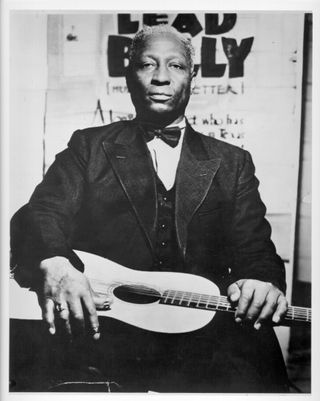
The likes of Lead Belly have been embraced as folk heroes by artists such as Bob Dylan, and by the most recent crop of new blues-rock bands, who have favored these older figures over the classic blues-rock explosion crowd of the 1960s, because they’re more authentic and raw.
Nirvana effectively turned the MTV generation on to Delta blues with their cover of Lead Belly’s “In the Pines”/“ Where Did You Sleep Last Night? ” But an artist like Lead Belly wasn’t trying to be restrained or virtuous. He was just working with the tools he had – that sparser sound he and his peers honed in the days before Marshall stacks and Fender Strats .
If Robert Johnson or Blind Lemon Jefferson had had access to an electric guitar , there’s every chance he would have cranked it all the way to 11, like the rock and roll stars who were to come.
Paying tribute to Robert Johnson, Led Zeppelin recorded an amped up cover version of his 1930s composition “Travelling Riverside Blues” for BBC radio in 1969.
Featuring a blistering 12-bar solo and some textbook slide work, Jimmy Page tips his hat to the iconic bluesman.
In 1990, the band released this unique promo video for the song featuring live and archive footage cut with various Mississippi-themed scenes.
We can only guess what Robert Johnson himself would make of it…
Order Annye C. Anderson’s Brother Robert: Growing Up with Robert Johnson here .
Get The Pick Newsletter
All the latest guitar news, interviews, lessons, reviews, deals and more, direct to your inbox!
Christopher Scapelliti is editor-in-chief of Guitar Player magazine, the world’s longest-running guitar magazine, founded in 1967. In his extensive career, he has authored in-depth interviews with such guitarists as Pete Townshend, Slash, Billy Corgan, Jack White, Elvis Costello and Todd Rundgren, and audio professionals including Beatles engineers Geoff Emerick and Ken Scott. He is the co-author of Guitar Aficionado: The Collections: The Most Famous, Rare, and Valuable Guitars in the World , a founding editor of Guitar Aficionado magazine, and a former editor with Guitar World , Guitar for the Practicing Musician and Maximum Guitar . Apart from guitars, he maintains a collection of more than 30 vintage analog synthesizers.
“I got the idea: ‘What if I had something with a variable speed motor, like a Dremel?‘ My tech said, ‘Oh, you want a vibrator‘: David Bowie and the Cure guitarist Reeves Gabrels on the joys of taking your tone into uncharted waters
“When I heard David Lindley play the Weissenborn, I went, ‘That’s the most incredible thing I’ve ever heard in my entire life!’”: Ben Harper on playing with Jack Johnson and Harry Styles, and the crazy Martin Pete Seeger and Woody Guthrie built
“I was getting more into atmospherics and noises; I wanted to get into open, wide arrangements with fewer chord changes”: Johnny Marr’s The The-era '62 American Vintage Strat reissue to be auctioned off
Most Popular
- 2 Mark Knopfler teams up with music therapy charity Nordoff and Robbins to give away a signed – and extremely rare – Boswell acoustic
- 3 Deep Purple guitarist Simon McBride reveals the Ritchie Blackmore lick that's given him the most trouble
- 4 Score up to $500 off a range of Breedlove acoustic guitars at Guitar Center in this epic Prime Day-beating sale
- 5 The Irish government is considering what it can do to keep Rory Gallagher’s Strat in the country
- Blues Rock Weekly – July 19, 2024
- Joe Bonamassa teams with Train to cover “Hold on Loosely”
- Deep Purple: =1 Review
- Albert Castiglia: Righteous Souls Review
- 10 Legends of Blues Rock

10 Transformative Blues Covers
Throughout its history, the blues has relied heavily on the reworking of stories and music with uncertain roots by modern artists. This list examines a selection of ten songs that have transformed over time and are recognized by many within the blues community as vital components of the genre’s ever-evolving songbook.
“I’m a Man”
In 1956, Bo Diddley recorded one of the most well-known blues/rock crossover songs of all time. Over fifty years after its release, “I’m a Man” lives on, as proud and strong as when Diddley first belted out its lyrics. The riff carried throughout the song is simple, yet eternal: hundreds of artists have utilized it in their own covers, transforming the tone of the song while keeping its basic sound and message intact.
It has been suggested that the lyrics for “I’m a Man” were influenced by Muddy Waters’ 1954 single “Hoochie Coochie Man.” Waters’ response to Diddley’s song, the famous “Mannish Boy,” became a classic of its own and has been covered by artists like Jimi Hendrix, the Rolling Stones, Aerosmith, and many others. To get a feel for the scope of this song’s rampant transformation, compare it to the sound and lyrics of George Thorogood & the Destroyers’ 1982 single “Bad to the Bone,” another version that utilizes both the riff and the underlying lyrical theme.
“Back Door Man”
This track always seems to top lists outlining remarkable cover songs. On their 1967 debut, the Doors released their version of Willie Dixon’s “Back Door Man,” a track originally recorded by Howlin’ Wolf . By the time the Doors recorded the song, Dixon was already recognized as a legendary Chicago Blues songwriter – his lengthy list of compositions includes classics like “Hoochie Coochie Man,” “I Can’t Quit You Baby” and “You Need Love,” a track that was reworked by Led Zeppelin into their famous “Whole Lotta Love.”
The Doors’ version of “Back Door Man” is instantly memorable for the yelp Jim Morrison brings to the beginning of the recording. Backed by Ray Manzarek’s trademark organ, the instrument that acted as both the bass and backbone of the group, the Doors’ “Back Door Man” is an example of a cover song that was completely transformed from its original version.
“Hound Dog”
Everyone knows who made “Hound Dog” famous – we don’t even have to mention his name. However, not everyone realizes that the original version of Jerry Leiber and Mike Stoller’s song was recorded by the blues artist best known as Big Mama Thornton in 1952. Thornton’s track is straight-up blues in both sound and theme, berating the actions of a cheating partner in a relationship thrown suddenly on the rocks. Four years after its release, Elvis Presley released his version – and what a difference. Presley’s “Hound Dog” has become the rock ‘n roll classic that history remembers, but Thornton’s bluesy original is where the story began.
“House of the Rising Sun”
Who doesn’t feel a chill run down their spine while listening to Eric Burdon sing about the house in New Orleans? The Animals’ 1964 “House of the Rising Sun” is haunting, a blues adaptation of a long-lost folk song with unknown origins. Whoever its composer might have been centuries earlier, the song was brought into the 20 th century by the Lomax family in the 1930s for inclusion in the Library of Congress’ Archive of American Folk Songs collection. Roy Acuff , Woodie Guthrie and Lead Belly all recorded versions of the song, but it wasn’t until the Animals released their rendition that “House of the Rising Sun” reached a comfortable #1 spot on popular music charts. As with the Doors’ “Back Door Man,” part of what makes this song memorable is the timeless tone of the organ creeping along in the background. Still, it is the A minor broken chord at the opening and Eric Burdon’s soulful vocals that make the Animals’ version a classic.
“Cross Road Blues”
One of the blues genre’s quintessential musicians, Robert Johnson met death early and became a member of the “Forever 27” after releasing a very limited amount of material. One of the songs he recorded during his famous three-day stint in a San Antonio recording studio was “Cross Road Blues,” a track that tells the tale of a man who encounters the devil and strikes a deal. Though the song was likely much older than Johnson was when he recorded it, the young musician claimed the story as his own, alleging that he himself had met the devil and exchanged his soul for musical excellence.
While many artists since Johnson’s time have cited him as a major inspiration behind their own work, Eric Clapton is one in particular who made Johnson a focus in much of his professional work. In addition to covering Johnson’s epic as the more simply titled “Crossroads,” Clapton created the Crossroads Guitar Festival as a talent-fueled music festival and simultaneous nod to Johnson’s influence. Most of all, it is the myth tied up in the song that hypnotizes artists and listeners alike, the driving force that propels individuals to seek out the legendary location of the crossroads and transform their experiences into whatever form of artistic expression that makes the most sense to them.
“All Along the Watchtower”
Everyone knows the Jimi Hendrix version of “All Along the Watchtower,” and most blues fans realize the song was written and recorded by Bob Dylan right around the time Hendrix was becoming a household name. Still, the differences between these two figures’ recordings are massive enough for inclusion on any list dealing with cover songs. Nine months after Dylan’s original track appeared on his album John Wesley Harding , Hendrix released his version as a single and watched it climb the charts in the UK and the U.S.
While Dylan’s original stays true to his native folk rock genre, Hendrix’s “All Along the Watchtower” includes the brutal guitar work that identifies him as the reigning guitar god of the 1960s. From a critical point of view, the Hendrix single combines the talents of the 20 th century’s unparalleled wordsmith and paramount guitar player in a remarkable pairing; from the perspective of a blues fan, it’s just great music.
“Baby, Please Don’t Go”
The original “Baby, Please Don’t Go” was recorded by Big Joe Williams in 1935. In the eight decades since, the song itself has become a blues standard, though artists have over time felt free to interpret its sound and lyrics in whatever ways they’ve seen fit. The list of the influential artists who have covered Big Joe Williams’ classic include Lightnin’ Hopkins, John Lee Hooker, Muddy Waters, Aerosmith, Ted Nugent, Thin Lizzy, and even MC5. AC/DC also released a version in 1975, and it is their performance of the song that we have chosen to highlight here. The group’s rapid tempo of the song drastically alters its scope, while Bon Scott’s whiplash lyrics introduce a degree of desperation that is not quite reached on Williams’ original. AC/DC’s corresponding music video, taken from a live performance on the Australian television show Countdown , similarly demonstrates the band’s goal of distancing themselves from the slow-paced original.
“Black Betty”
“Black Betty” is another song with uncertain origins. As with “House of the Rising Sun,” it was recorded in the 1930s by the Lomax family for preservation in the Library of Congress’ Archive of American Folk Songs and was officially recorded by Lead Belly in 1939. As with the details regarding its creator and composition date, the meaning behind “Black Betty” is widely disputed. Most critics agree that the song originated in the U.S. during the 1800s as a work song, and thus its meaning could be tied to whips and wagons. Others cite “black Betty” as a nickname for whiskey that was used not only in the U.S., but in London as well; it has also been suggested that “black Betty” was a nickname for a musket, with the “bam-ba-lam” lyrics intended to mimic the sound of gunfire.
Though the tempo and repeating lyrics are well known among blues artists and listeners, few “Black Betty” covers have made impacts on the charts in the U.S. or overseas, with the exception of the one hit wonder band Ram Jam in 1977. The Ram Jam cover is similar to Lead Belly’s recording in its rhythm and lyrics – the real difference is in its musical support. Lead Belly originally recorded the track using no instrumentation besides his own vocals. Though Lead Belly added accompanying guitar work in later renditions, Ram Jam skipped ahead to incorporate a full sound the first time around. Despite the similarities in tempo and lyrics in these two versions, the recordings demonstrate how artists worked to adapt “Black Betty” over time to fit with their own interpretations of its meaning and to make use of evolving technology.
“Ball ‘n’ Chain”
Most listeners recognize “Ball ‘n’ Chain” as a Janis Joplin song (recorded officially by Big Brother and the Holding Company in 1968), but it was actually recorded first by the same woman responsible for the early “Hound Dog.” Like Joplin, Big Mama Thornton had a deep, gruff voice perfect for the howling vocals of “Ball ‘n’ Chain.” It was Joplin’s performance of this song that made jaws drop at the Monterey Pop Festival in 1967 – watching the crowd’s reaction to her breakthrough performance at the festival is almost as fun as listening to her sing. Joplin later achieved fame with her cover of Erma Franklin’s “Piece of My Heart,” but it was “Ball ‘n’ Chain” that earned Joplin accolades for her incredible voice.
“Traveling Riverside Blues”
Another of Robert Johnson’s limited recordings is “Traveling Riverside Blues,” a traditional track that follows the 12 bar blues structure and has largely been kept alive through renditions by a handful of prominent blues and rock artists. Not surprisingly, Eric Clapton covered the track, as did his band Cream, but it is Led Zeppelin’s version that acts as the most memorable cover. Instead of simply covering the song, Led Zeppelin transformed it, turning the track into a guitar-driven force that occasionally references Johnson’s lyrics but is formidable enough to stand on its own. “Travelling Riverside Blues” (the British rockers added an extra “l” to the title, as well) sounds almost nothing like the original, but the roots are there if you listen closely.
– Meghan Roos

Traveling Riverside Blues
Added by anto47
- Highlights 3
- Versions 22
- Adaptations 1
Traveling Riverside Blues written by Robert Johnson English
Traveling Riverside Blues written by Robert Johnson instrumental
Travelling Riverside Blues written by Jimmy Page , Robert Plant English
- Remember me Not recommended on shared computers
Forgot your password?
- Musician's Corner

Travelling Riverside Blues Cover
- travelling riverside blues

By gibsonfan159 February 10, 2018 in Musician's Corner
- Start new topic
Recommended Posts
Gibsonfan159.
This, to me, is the coolest riff Page ever put down on guitar. Is it a traditional blues progression? Sure, but the way Page combines this acoustic riff with electric guitar and turns it into a blues rock masterpiece still astounds me today. He was a little over twenty when he recorded this. The swagger of this song is still unmatched in my opinion. You can bring up Beck, Clapton, Richards, Townsend, or Steve Vai, but none of them put anything down that sounded as confident and cool as this song.
Link to comment
Share on other sites.

I like it ! love the sound of the 12 strings, it match very well with the original. I don't bother to tune my 12 strings to other tunings than standard, I'm too afraid to break a string haha. Well done
4 hours ago, Klape said: I like it ! love the sound of the 12 strings, it match very well with the original. I don't bother to tune my 12 strings to other tunings than standard, I'm too afraid to break a string haha. Well done
Thank you! This was my first attempt with it on the 12. Took me thirty minutes to retune it. I'd ways thought this was an electric song, so it kinda blew my mind when I read Page used an acoustic 12 for the main guitar.

Excellent, very nicely played. This makes you appreciate the great sophistication of what Page played. It's fairly simple but so musically rich. When you hear it isolated and see it demonstrated, it highlights it's greatness. I've been doing some drum demos of Bonham's drumming on my new YouTube channel BONZOLOGY with Terry and George. Check it out!
44 minutes ago, porgie66 said: Excellent, very nicely played. This makes you appreciate the great sophistication of what Page played. It's fairly simple but so musically rich. When you hear it isolated and see it demonstrated, it highlights it's greatness. I've been doing some drum demos of Bonham's drumming on my new YouTube channel BONZOLOGY with Terry and George. Check it out!
Thanks, and will do.
- 3 months later...
DogsoverLava
On 2/9/2018 at 4:52 PM, gibsonfan159 said: This, to me, is the coolest riff Page ever put down on guitar. Is it a traditional blues progression? Sure, but the way Page combines this acoustic riff with electric guitar and turns it into a blues rock masterpiece still astounds me today. He was a little over twenty when he recorded this. The swagger of this song is still unmatched in my opinion. You can bring up Beck, Clapton, Richards, Townsend, or Steve Vai, but none of them put anything down that sounded as confident and cool as this song.
Dude -- where did you get that slide and what kind of slide is it? Never seen that before - awesome.
4 hours ago, DogsoverLava said: Dude -- where did you get that slide and what kind of slide is it? Never seen that before - awesome.
It's called a jet slide. Allows you to play with all four fingers.
6 hours ago, gibsonfan159 said: It's called a jet slide. Allows you to play with all four fingers.
Sweet -- it looks really good -- did you use one with glass or just metal? (I see they have a few different options).
22 minutes ago, DogsoverLava said: Sweet -- it looks really good -- did you use one with glass or just metal? (I see they have a few different options).
Metal. I didn't know they had glass ones.
Just now, gibsonfan159 said: Metal. I didn't know they had glass ones.
They've got models that mount a rounded glass piece over the metal rod... I assume it must be thicker as a result.
- 7 months later...

GREAT playing 159. Nice feel and tone on that one. Bravo
First time I saw that slide was the guy from The Rival Sons. I need one now 😎
14 hours ago, pageluvva said: GREAT playing 159. Nice feel and tone on that one. Bravo First time I saw that slide was the guy from The Rival Sons. I need one now 😎
Thank you. I always hated playing slide due to not being able to chord properly, but this thing makes all the difference.
This topic is now archived and is closed to further replies.
LEDZEPPELIN.com

Site Navigation
- LedZeppelin.com Home
- Discography
- Merchandise
- Privacy Policy
Led Zeppelin Timeline
- Concert Timeline / Database
- Existing user? Sign In
- Online Users
- All Activity
- My Activity Streams
- Unread Content
- Content I Started
- Create New...
Travelling Riverside Blues Tab
Led zeppelin.

IMAGES
VIDEO
COMMENTS
The Night Owls:Vocals: JuliaBass: MichaelDrums: AndrewGuitar: Dave#TravellingRiversideBlues#LedZeppelin#TravelingRiversideBlues#NightOwlsBand#CoverSong#Cover...
Led Zeppelin - Travelling Riverside BluesCover with Awesome Backing Track performed by my friend "larzgallows"!Check out his great stuff,http://www.youtube.c...
"East Meets West" members Dom Polito, Rick Vatour, Mark Yanetta, & Danny Deane perform the Led Zeppelin classic, "Travelling Riverside Blues". Recorded remot...
Columbia. Songwriter (s) Robert Johnson. Producer (s) Don Law. " Travelling Riverside Blues " is a blues song written by the bluesman Robert Johnson. He recorded it on June 20, 1937, in Dallas, Texas, during his last recording session. The song was unreleased until its inclusion on the 1961 Johnson compilation album King of the Delta Blues ...
Led Zeppelin originally released Travelling Riverside Blues written by Robert Johnson, Jimmy Page and Robert Plant and Led Zeppelin released it on the album Led Zeppelin [Boxed Set] in 1990. It was covered by The Pedrito Martinez Group feat. John Scofield.
The grand surprise was the inclusion of the two unreleased tracks. The inclusion of "Traveling Riverside Blues," on the Led Zeppelin box set was the crown jewel of the box set for Led Zeppelin fans. The song had been recorded in 1969 at one of the seven BBC studios in London, England. Because the song had been recorded at one of the BBC ...
Robert Johnson. Got no lien on my body. / Got no mortgage on my soul. / Got no lien on my body, baby. / Got no mortgage on my soul John Lee Hooker. First time I heard this was on the box set .I thought well Zeppelin dug up some old stuff.This was back in the day before I started to collect Zeppelin bootlegs.
Famous Blues Covers: Led Zeppelin, "Travelling Riverside Blues" Derick Photo from Eric Alpert Facebook page. It's Wednesday: time for another episode of our "Famous Blues Covers". "Travelling Riverside Blues": from Robert Johnson to Led Zeppelin. Enjoy! And now let's listen to the original! What a song! Famous Blues Covers Led Zeppelin robert ...
Paying tribute to Robert Johnson, Led Zeppelin recorded an amped up cover version of his 1930s composition "Travelling Riverside Blues" for BBC radio in 1969. Featuring a blistering 12-bar solo and some textbook slide work, Jimmy Page tips his hat to the iconic bluesman. In 1990, the band released this unique promo video for the song ...
"Traveling Riverside Blues" Another of Robert Johnson's limited recordings is "Traveling Riverside Blues," a traditional track that follows the 12 bar blues structure and has largely been kept alive through renditions by a handful of prominent blues and rock artists. Not surprisingly, Eric Clapton covered the track, as did his band ...
Official music video for Led Zeppelin - 'Travelling Riverside Blues'. Originally written by blues legend Robert Johnson, Led Zeppelin recorded their tribute ...
Travelling Riverside Blues Lyrics. [Intro] Hey That's right [Verse 1] Asked sweet mama, let me be her kidShe said, "You might get hurt if you don't keep it hid" Well, I, I know my baby if I see ...
The song Travelling Riverside Blues was written by Robert Plant, Jimmy Page and Robert Johnson and was first released by Led Zeppelin in 1990. It was adapted from Traveling Riverside Blues (Robert Plant, Jimmy Page and Robert Johnson). It was covered by The Pedrito Martinez Group feat. John Scofield.
Covers of "Traveling Riverside Blues" Robert Johnson's "Traveling Riverside Blues" has been covered by numerous artists, each bringing their unique interpretation to the song. While there are countless versions that can be found online, here are two of the most famous covers of the song.
Led Zeppelin - Short Biography. - Led Zeppelin was an English rock band formed in London in 1968. - The band consisted of Robert Plant (vocals), Jimmy Page (guitar), John Paul Jones (bass/keyboard) and John Bonham (drums). - Their sound is heavily guitar driven, and they are cited as the forerunners of hard rock and heavy metal.
🎸DOWNLOADABLE TABS FOR THIS SONG: https://www.musicnotes.com/l/L35mpI loved how Zeppelin took inspiration from Robert Johnson's "Traveling Riverside Blues,"...
The song Traveling Riverside Blues was written by Robert Johnson and was first recorded and released by Robert Johnson in 1961. It was covered by Buick 6, The Original Snakeboy, Roger Hubbard, Dion and other artists.
Travelling Riverside Blues Cover Travelling Riverside Blues Cover. travelling riverside blues; cover; guitar; By gibsonfan159 February 10, 2018 in Musician's Corner. Start new topic; Recommended Posts. gibsonfan159. Posted February 10, 2018. gibsonfan159. Members; 2k Gender: Male;
Old days for Greta Van Fleet with Led Zeppelin covers :) Travelling Riverside Blues by 16-18 years old guys somewhere in biker's bars in 2015
Travelling Riverside Blues Tab by Led Zeppelin. 44,591 views, added to favorites 194 times. Capo: no capo: Author xonty [a] 625. Last edit on Feb 13, 2014. View official tab. We have an official Travelling Riverside Blues tab made by UG professional guitarists. Check out the tab. Listen backing track.
Travelling Riverside Blues Tab. Difficulty (Rhythm): Revised on: 4/21/2016. Led Zeppelin. Track: Right Pan Guitar - Distortion Guitar . Upgrade to Plus for uninterrupted sync with original audio. Travelling Riverside Blues Tab by Led Zeppelin. Free online tab player. ...
English rock band Led Zeppelin's version of this song was produced by John Walters at the BBC studios in Aeolian Hall on June 24, 1969 during the band's UK T...
Hello :) This is the requested transcription I've done of the Led Zeppelin song "Travelling Riverside Blues" that John Paul Jones played bass on.** TUNE DOWN...